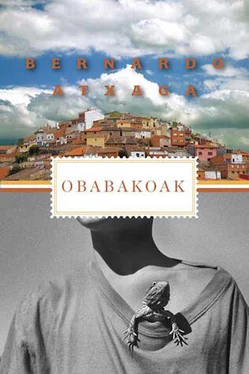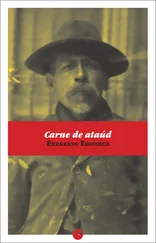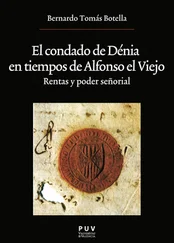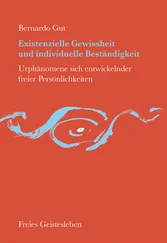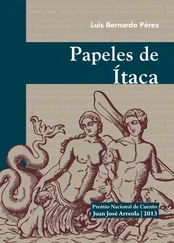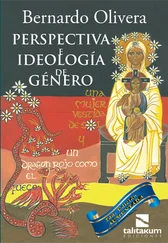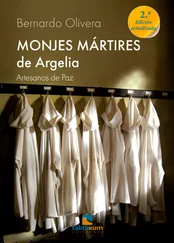Bernardo Atxaga - Obabakoak
Здесь есть возможность читать онлайн «Bernardo Atxaga - Obabakoak» весь текст электронной книги совершенно бесплатно (целиком полную версию без сокращений). В некоторых случаях можно слушать аудио, скачать через торрент в формате fb2 и присутствует краткое содержание. Год выпуска: 2010, Издательство: Graywolf Press, Жанр: Современная проза, на английском языке. Описание произведения, (предисловие) а так же отзывы посетителей доступны на портале библиотеки ЛибКат.
- Название:Obabakoak
- Автор:
- Издательство:Graywolf Press
- Жанр:
- Год:2010
- ISBN:нет данных
- Рейтинг книги:3 / 5. Голосов: 1
-
Избранное:Добавить в избранное
- Отзывы:
-
Ваша оценка:
- 60
- 1
- 2
- 3
- 4
- 5
Obabakoak: краткое содержание, описание и аннотация
Предлагаем к чтению аннотацию, описание, краткое содержание или предисловие (зависит от того, что написал сам автор книги «Obabakoak»). Если вы не нашли необходимую информацию о книге — напишите в комментариях, мы постараемся отыскать её.
Obabakoak
The Observer
Obabakoak — читать онлайн бесплатно полную книгу (весь текст) целиком
Ниже представлен текст книги, разбитый по страницам. Система сохранения места последней прочитанной страницы, позволяет с удобством читать онлайн бесплатно книгу «Obabakoak», без необходимости каждый раз заново искать на чём Вы остановились. Поставьте закладку, и сможете в любой момент перейти на страницу, на которой закончили чтение.
Интервал:
Закладка:
I too was watching the swallows, trying to buy time before giving my reply.
“They say there’s no way of knowing,” I said at last, “that each person must find the answer in his heart. But if you’ve always believed in its existence, ever since you were a child, I see no reason why you should stop believing in it now. It would be absurd to abandon a belief that’s been with you all your life.”
Benito showed his wholehearted agreement by nodding his head vigorously.
“But what do you think?” asked Julián, fixing me with his eyes.
“Sometimes I think there is and sometimes I think there isn’t.” I could find no other way out.
“Same here.” He sighed, getting up from the square stone bench. “I’ll tell you one thing, though, Benito. If there is a heaven, we’ll both be going straight there,” he concluded, making his final preparations before continuing their ascent.
“Well, I certainly will,” replied Benito, adjusting his glasses. He was none too sure about his friend’s spiritual future.
“Anyway,” they announced, picking up their walking sticks, “on with the test.”
Whatever their declared reasons for doing so, they didn’t climb up the hill merely to test out their strength, just as old fishermen don’t go down to the harbor simply for a stroll. Installed up there on the highest point, the retired men of Villamediana could keep an eye on the work going on in the fields and on life on the plain; they could see who came and who went, how much time it would take for someone to finish their sowing and how much time another would take to plow a fallow field. And just as old fishermen can instantly recognize a ship on the horizon, those men could identify a tractor from miles away — there goes Purísimo, oh, and that’s José Manuel getting started — where a stranger could barely make out even a shadow.
“Now you may be cleverer than a rabbit, but I’ll bet anything you like that you can’t see as many things from here as I can,” Julián said to me once. Julián, Benito, and I were sitting on the stone bench outside one of the bodegas and the plain they kept such a close watch on lay stretched out beneath us.
“I’m sure you’re right, but what makes you say so?” I asked.
“Because you only see what’s there, whereas I see both what is there and what isn’t there.”
“Such as?”
“Do you see that path?”
And with his stick he indicated a pathway that crossed the plain and disappeared into the plateau. Benito, as usual, leaned forward and half-closed his eyes.
“What do you see there? Just a path and nothing more, right? I, on the other hand, see the path that leads to Encomienda. I mean that’s what I think and when I think that, I see the place called Encomienda and in my mind’s eye I see the big old house and the fountain. And it’s the same with everything else. See those trees over there?”
“I can’t,” said Benito. The trees were a fair way off, on the banks of the Pisuerga.
“Do you remember the plot of land where we had that party when we were young?”
“The place where we went swimming?”
“That’s right, Benito. And that’s what I mean. When I see those trees I see all the parties we held when we were young. I see the girls and the boys, I see Benito and myself. Not old and decrepit like we are now, but with our white shirts on and with all the grace of our twenty years. Isn’t that marvelous?”
“It certainly is,” I said when he’d concluded these reflections. “And I’d add something to what you’ve just said, and that’s that new places always seem hostile to us. When I arrived in Villamediana, I spent the first week walking the streets of the village, from one end to the other, reconnoitering the territory, if you like. And I must admit it seemed the saddest, most desolate place in the world.”
“Call themselves Christians!” exclaimed Benito, suddenly angry.
Julián told him not to interrupt.
“Well, all I mean is that the village just seemed very hostile to me. Of course, then I could only see Villamediana with my eyes, I saw only houses, walls, windows… what you might call the outer shell. For example, I’d walk past your house and see only walls and windows. Now, though, when I walk by, I think: There’s Julián’s house. There lives the wisest man in Villamediana. That makes a big difference, I think.”
“See, Benito?” Julián said, laughing. “You see how talking helps you understand people. It’s very kind of you to call me ‘wise’ but, as everyone knows, I’m nothing but a fool. The only wise man in the village is you, Benito, not me. Now you really do see things that no one else does! Do you remember that business with the statue?” Julian asked him, winking at me. Did I know what he was referring to? Indeed I did. It was something Benito had told me some months before when we were sitting on that same bench.
“Do you like this village?” Benito had asked me then.
“Yes, I do, very much. I really like it here.”
Well, you would. It’s not surprising really. There are a lot of things to see in Villamediana, loads of them. We even have a statue of Trajan…”
“A statue of Trajan?” I said incredulously because I’d never heard anyone mention such a thing all the time I’d been in the village. I glanced at Julián to see if he could enlighten me, but in vain. By some mysterious process of mimesis, he too had been transformed into a statue.
“Yes, Trajan! We have an equestrian statue of Trajan in the village!” Benito was talking with some vehemence, banging his stick on the ground for emphasis.
“What’s it like?”
“It’s made of gold. The whole thing is solid gold!”
“And where is this statue?”
I imagined a museum or some similar institution. However, Benito raised his stick above his head, traced a few circles in the air, and declared:
“Out there somewhere!”
“Don’t you think that’s remarkable! What I’d like to know is how he can describe in such detail something that hasn’t even been discovered yet,” said Julián, guessing my thoughts.
“The council should find it any day now!” Benito said.
Two months had gone by since that conversation and the equestrian statue of Trajan had still not turned up. But by then — and this is what lay behind the wink — Julián had discovered the identity of Benito’s informant.
“It seems an angel told him about the statue. What do you think of that?”
“I think he’s very lucky,” I said, looking across at Benito’s radiant face lit up by a beatific smile.
6. Houses that have never been lived in, or, for example, holiday homes that have been built to be lived in only at certain times of the year do not tend to have ghosts. Although empty, they don’t seem it, and any murmurings you hear coming from them are never overly querulous. Such houses know deep down that their solitude will not last forever. Sooner or later someone will come. The doors will open, the lights will go on, and they’ll begin to live again.
On the other hand, houses that were lived in once but have since been abandoned seem even emptier than they really are and they begin to talk the moment they’re left alone. It’s said that the life they gave shelter to in days gone by never quite disappears and that they display odd bits of evidence to the passerby, as if displaying old wounds. Thus a curious passerby might find a kitchen utensil abandoned on the ground, the small mirror the house’s former owner used when shaving, or a metal rod that was once part of a baby’s cradle. And having listened to that revelation, the passerby comes to realize that all abandoned houses are literally crying out for someone to walk through the front door and make themselves at home.
Читать дальшеИнтервал:
Закладка:
Похожие книги на «Obabakoak»
Представляем Вашему вниманию похожие книги на «Obabakoak» списком для выбора. Мы отобрали схожую по названию и смыслу литературу в надежде предоставить читателям больше вариантов отыскать новые, интересные, ещё непрочитанные произведения.
Обсуждение, отзывы о книге «Obabakoak» и просто собственные мнения читателей. Оставьте ваши комментарии, напишите, что Вы думаете о произведении, его смысле или главных героях. Укажите что конкретно понравилось, а что нет, и почему Вы так считаете.
